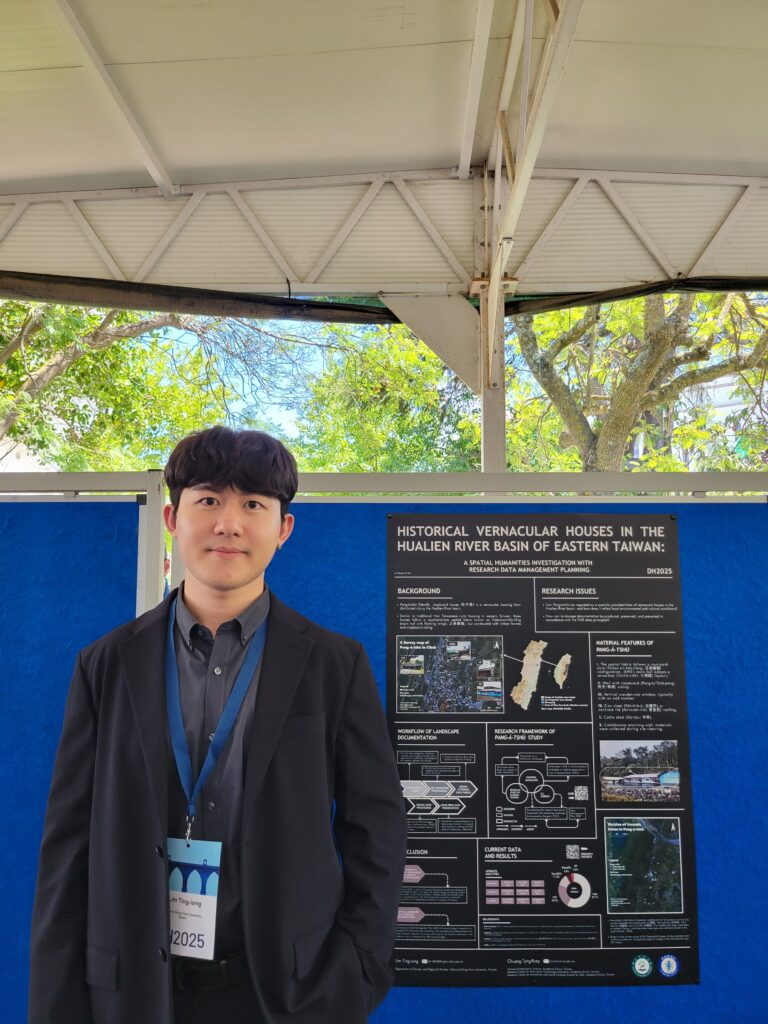ADHO offers Conference Bursary Awards to support students and early career scholars in attending the annual conference. DH2025 was held in Lisbon (Portugal) on 14-18 July, and we are happy to share the experiences of the award recipients.
Among the Awardees is Tîng-iông Lîm, the National Dong Hwa University. As Ting-iong puts it:
First, I would like to thank my benefactor and Friend Dr. Chuang Tyng-Ruey for his guidance and support, which gave me the opportunity to encounter a broader world at an age I had never expected. I also want to thank the ADHO Awards Committee for such a generous opportunity. In many ways, it is through the encouragement and support of others that my academic journey has been made possible.The paper co-authored with Dr. Chuang, “Historical Vernacular Houses in the Hualien River Basin of Eastern Taiwan: A Spatial Humanities Investigation with Research Data Management Planning” , being accepted by DH2025, a highly influential conference in the field of Digital Humanities was a tremendous encouragement for me. It affirmed that my observations, ideas, and perspectives could be recognized. Our goal is to take the “Pang-á-tshù,” in the Hualien River Basin of eastern Taiwan, as an example to show how the documentation and preservation of cultural landscape can be carried out under the principles of FAIR data.
At DH2025, we gathered in Lisboa to discuss issues such as cultural heritage preservation, digital archiving from postcolonial perspectives, the risks of applying large language models in the digital humanities, gender and ethnic bias, and the development of open data and digital infrastructures for broader public engagement. Although participants came from diverse discipline backgrounds and concerns, we shared a common commitment to inclusivity and the ideals of open science, it was truly an inspiring achievement.At a time when wars, pandemics, environmental crises, and cybersecurity risks expand globally in a kind of “dystopia,” I feel honored to be part of a digital humanities community that responds actively to democratic values and contemporary concerns.

